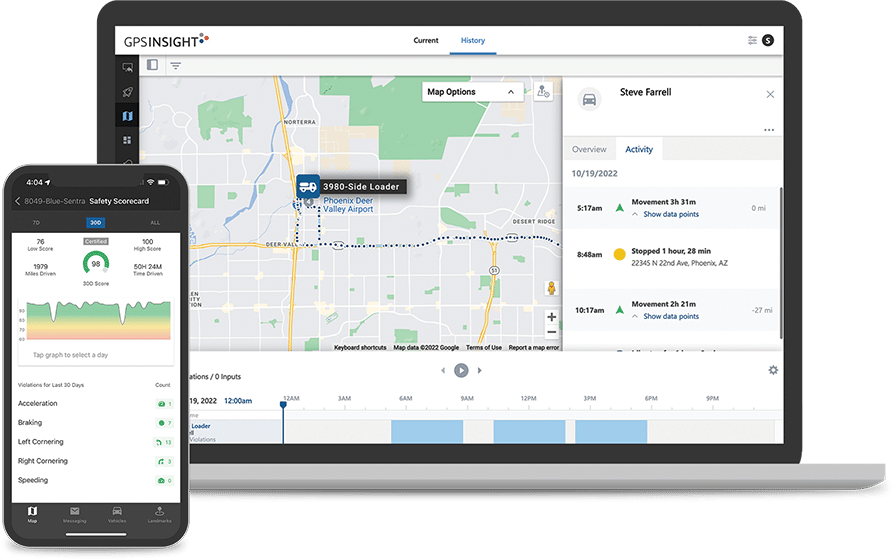
Clean Air Month: Fleet & Field Working for Change
May is National Clean Air Month, the American Lung Association’s annual nationwide campaign to raise awareness of the impact clean air has on our lives and to encourage communities and businesses to take action to improve air quality.
Launched in 1972 in the wake of the passage of the Clean Air Act, Clean Air Month highlights the effects air pollution has on health, the substantial progress made in improving air quality over the past 50+ years, and the steps needed to ensure a safer, healthier environment for us all in the decades ahead.
The Health Impact of Pollution
Most of the air pollution we see and breathe comes from energy production and use. We generally see those results in smog and soot, the two most prevalent types of air pollution. Smog is the result of emissions from combusting fossil fuels reacting with sunlight.
Heavy-duty vehicles are one of the main contributors to smog worldwide, generating more than 25% of total warming emissions and 35% of California’s emissions. Soot is the combination of tiny particles of chemicals, soil, smoke, dust, or allergens carried in the air.
Air pollution is now the world’s fourth-largest risk factor for early death. According to the most recent State of Global Air report, 4.5 million deaths were linked to outdoor air pollution exposures in 2019.
While more work remains to be done, progress has been made. According to a University of North Carolina study, air pollution decreased significantly between 1990 and 2010. The research showed that U.S. deaths related to air pollution exposure dropped by 47%, from 135,000 in 1990 to 71,000 in 2010. The Environmental Protection Agency also found particulate pollution declined by over 24 percent between 2009 and 2016.
Save Green by Going Green
While dramatically increasing fuel economy and reducing emissions over the past three decades, fleets—particularly those using heavy-duty vehicles—still have a role to play in further reducing air pollution.
Swapping the worst offenders out for new, cleaner options isn’t simply good for air quality, it’s good for business, and many public and private fleets are leading the way. As more consumers reward companies based on making environmental concerns a key tenet of their operations, major companies like Amazon, Walmart, PepsiCo, and others have begun seriously investing in heavy-duty electric trucks to reduce their carbon footprint and save money. Public fleets, from buses to law enforcement and other city vehicles, are also ramping up efforts to adopt electrical vehicles (EVs).
According to EnergySage, charging an EV is roughly three times cheaper by the mile than a gas-powered vehicle.
Not only do EVs shrink their carbon footprint, but the cities also cut their maintenance and operating costs. The federal government estimates that an EV costs less than half its gasoline counterpart to go the same distance. These estimates are based on residential rates: Public fleets that have their own solar or wind power will pay even less. Growing federal incentives will help save even more.
Going Green Checklist
Of course, EVs aren’t the only way to green your fleet. There are several steps fleets of all sizes can take right now to help reduce emissions while driving more revenue, including:
Reduce unnecessary engine idling
Engine idling costs vehicle owners the price of almost one gallon of fuel each hour. Idling also increases engine wear and pollutes the air. By utilizing a GPS tracking solution, fleet managers can take control over idling and other inefficient driving practices that waste fuel and produce excessive CO2 emissions into the atmosphere.
Institute fuel-efficient driving practices
Drivers and operators are critical to successfully reducing fuel consumption and air pollution. Fleet owners can reduce fuel consumption by training drivers and operators on fuel-efficient driving strategies and creating rewards programs that offer incentives for conserving fuel.
Increase route efficiency
GPS tracking solutions help get drivers from point A to point B in the most efficient way possible. By taking efficient routes to and from the job site, fleets will significantly reduce greenhouse gas emitted from your vehicles.
Schedule maintenance reminders
GPS tracking solutions can also help fleets stay up to date on oil changes, air-filter changes, emissions testing, and other services with automated maintenance reminders. Ensuring proper maintenance of vehicles can increase a fleet’s MPG by upwards of 25%.
Right-size your fleet
It is important to right-size your vehicles—identify and purchase the most appropriate size and class of vehicle for the intended application. When it is time to replace or purchase additional vehicles, consider the greenest options possible to help reduce air pollution and increase public demand for green vehicles. If smaller vehicles meet the fleet’s needs, the fleet will usually save money because smaller vehicles are typically less expensive and use less fuel than larger vehicles.
GPS Insight is Committed to Sustainability
At GPS Insight, one of our missions is to help fleets do their part to reduce their environmental, economic, and social impact. Our solutions help fleets increase operational efficiencies, improve maintenance and vehicle usage, and reduce fuel and energy waste.
We are proud of the impact we’re having in this critical area. That’s why we are proud GPS Insight earned the Business Intelligence Group’s prestigious 2022 Sustainability Award for those efforts.
For fleets big or small, creating a sustainable fleet program is one of the greatest contributions that can be made to help reduce their impact on climate change. With CO2 emissions at an all-time high, it is now more important than ever for fleets to consider their sustainability goals. The Environmental Protection Agency reports that transportation now accounts for 27% of the country’s greenhouse gas emissions. That means fleet managers have a huge opportunity to make a difference.






